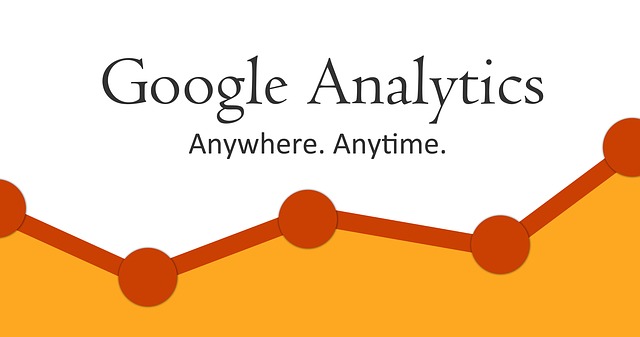Ethical Search Engine Optimization (SEO) revolves around White-Hat SEO Techniques, which prioritize quality, integrity, and user experience over short-term fixes. These techniques include keyword research for user intent, high-quality content creation, on-page optimization like meta tags and headings, mobile responsiveness, staying current with industry standards, regular auditing, monitoring competitors, data analytics, genuine backlinking, and engaging user experiences. By avoiding Black-Hat methods, websites can naturally improve rankings, maintain search engine trust, and drive qualified traffic while preserving their integrity. White-Hat SEO ensures long-term success, adapting to evolving trends like voice search, AI integration, and enhanced user experience.
In an era dominated by digital marketing, Ethical Search Engine Optimization (SEO) stands as a beacon of integrity. This article explores the foundational principles of White-Hat SEO practices, distinct from the unethical Black-Hat techniques that can lead to penalties. We delve into key strategies for implementing ethical optimization, covering on-page and off-page tactics, analytics integration, and future trends. By embracing White-Hat SEO Techniques, businesses can achieve sustainable search rankings while prioritizing user experience and long-term success.
Understanding Ethical SEO: The Foundation of White-Hat Practices

Ethical Search Engine Optimization (SEO) forms the bedrock of successful and sustainable online visibility. It’s centered around adopting White-Hat SEO Techniques, which prioritize long-term growth over quick fixes. These techniques align with search engine guidelines, ensuring content remains relevant, valuable, and accessible to users. By focusing on quality content creation, effective keyword research, and user experience optimization, websites can climb the ranks organically while maintaining integrity.
White-Hat practices ensure that SEO efforts remain transparent and beneficial to both users and search engines. They discourage black-hat tactics like keyword stuffing, link farming, or hidden text manipulation, which can lead to penalties and harm a site’s reputation. Embracing these ethical guidelines fosters trust, drives qualified traffic, and contributes to a healthier online ecosystem.
What Sets White-Hat SEO Apart from Black-Hat Techniques

White-Hat SEO Techniques stand in stark contrast to the dubious practices often associated with Black-Hat SEO. While Black-Hat techniques employ manipulative strategies that may provide short-term gains, White-Hat SEO focuses on ethical, sustainable methods that enhance user experience and uphold search engine integrity.
The key differentiator lies in their approach to ranking websites. White-Hat SEO advocates for content quality, keyword research, and technical optimization within established guidelines. This includes creating valuable, relevant content, optimizing site structure for better navigation, and ensuring mobile responsiveness. In contrast, Black-Hat techniques often resort to spammy tactics like keyword stuffing, hidden text, or link farming, which can lead to penalties from search engines.
Key Principles of Implementing Effective and Ethical Search Optimization

When implementing effective and ethical search optimization, adherence to White-Hat SEO Techniques is paramount. These principles focus on natural, sustainable strategies that enhance search engine rankings without cutting corners or violating guidelines. Key practices include conducting thorough keyword research to understand user intent, creating high-quality content that offers genuine value, optimizing meta tags and headings for relevance, and ensuring a seamless mobile experience. By prioritizing these White-Hat SEO Techniques, businesses can achieve long-term success while maintaining the trust of both search engines and users.
Additionally, ethical optimization involves staying updated with the latest industry standards and algorithm changes. Regularly auditing websites, monitoring competitor strategies, and leveraging data analytics to inform decisions are essential components. Building quality backlinks through genuine collaborations and creating an engaging user experience that encourages natural links from satisfied visitors also contribute to a robust, sustainable SEO strategy. Ultimately, embracing White-Hat SEO Techniques ensures that search engine rankings are not only achieved but also maintained over time.
On-Page Optimization: A White-Hat Approach for Content Quality and User Experience

On-Page Optimization is a fundamental aspect of ethical and effective Search Engine Optimization (SEO). It involves refining website content and structure to enhance both user experience and search engine rankings, all while adhering to best practices known as White-Hat SEO Techniques. These techniques prioritize quality content creation, ensuring that each web page offers valuable information that satisfies user queries. By focusing on in-depth, relevant, and engaging content, sites can attract and retain visitors, encouraging higher engagement metrics.
Additionally, On-Page Optimization involves optimizing meta tags, headings, and internal linking to signal search engines about the page’s relevance and importance. Proper use of keywords, without excessive optimization (a common Black-Hat SEO approach), helps rank pages accurately in search results. This white-hat strategy not only avoids penalties but also fosters trust with users, ensuring they receive accurate, relevant information that meets their needs from the start.
Off-Page Strategies: Building Reputable Backlinks the Ethical Way

Off-Page strategies in Ethical Search Engine Optimization (SEO) focus on building reputable backlinks, a crucial aspect of boosting your website’s authority and visibility. Instead of resorting to Black-Hat tactics that can lead to penalties, White-Hat SEO Techniques prioritize natural and sustainable link acquisition. This involves engaging with authoritative websites within your niche to earn high-quality backlinks. By contributing valuable content, such as guest posts or in-depth analyses, you establish yourself as an industry expert, making other sites naturally want to link back to yours.
Additionally, leveraging social media platforms, influencer partnerships, and online directories can help in building a robust backlink profile. Engaging with influencers and industry leaders in your niche can lead to opportunities for sponsored content or brand mentions, all of which contribute to valuable backlinks without compromising ethics. Using relevant and reputable online directories also increases your site’s visibility while ensuring that the links pointing to you are from trusted sources.
The Role of Analytics in Measuring Ethical SEO Success

In the realm of Ethical Search Engine Optimization (SEO), analytics serves as a compass, guiding practitioners towards genuine success that prioritizes user experience and sustainability. By leveraging robust analytical tools, SEO specialists can objectively measure the effectiveness of White-Hat SEO Techniques deployed across websites. These insights enable data-driven decisions that enhance organic search rankings while upholding ethical standards.
Analytics plays a pivotal role in identifying which strategies resonate with both users and search engines. Through meticulous tracking of key performance indicators (KPIs), such as click-through rates, bounce rates, and time spent on site, professionals can assess the impact of their Ethical SEO efforts. This continuous monitoring allows for swift adjustments to tactics, ensuring that the website remains optimized not just for search algorithms but also for human visitors, thereby fostering a harmonious relationship between organic traffic and search rankings.
Future Trends in SEO: Staying Ahead with Ethical Practices

As technology evolves, so do search engine optimization trends. Future-proofing your website’s SEO involves staying abreast of emerging algorithms and user preferences. The good news is that ethical practices like White-Hat SEO Techniques remain paramount in this landscape. By focusing on content quality, mobile optimization, voice search integration, and building genuine backlinks, you can ensure your site remains competitive without cutting corners.
Trends like artificial intelligence (AI) integration in search engines and the increasing importance of user experience (UX) will further shape SEO strategies. Adapting to these changes while adhering to ethical guidelines is key. This includes utilizing AI tools responsibly for content creation and optimization, as well as prioritizing a seamless UX that meets user needs and expectations.
